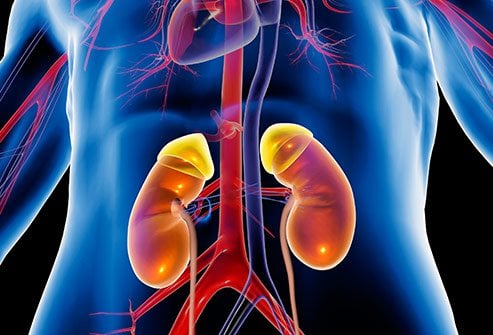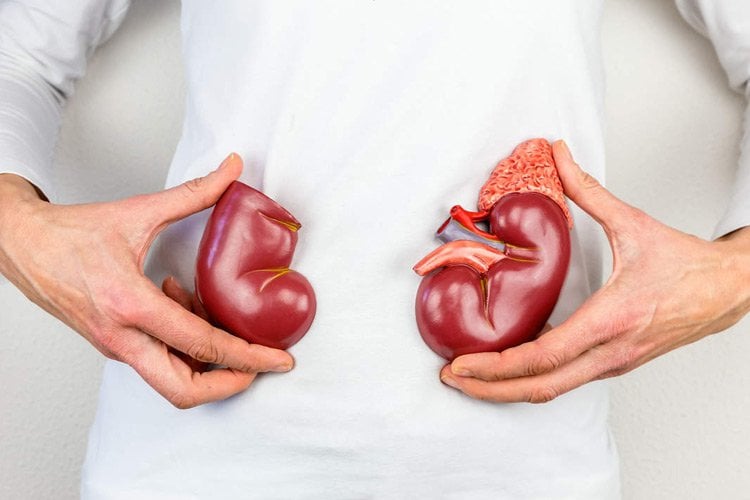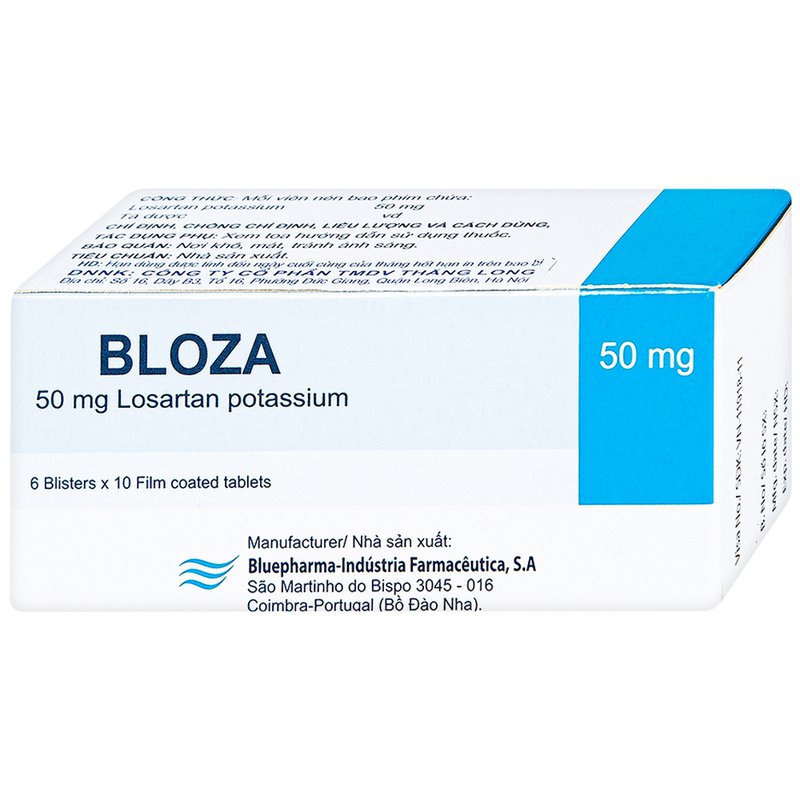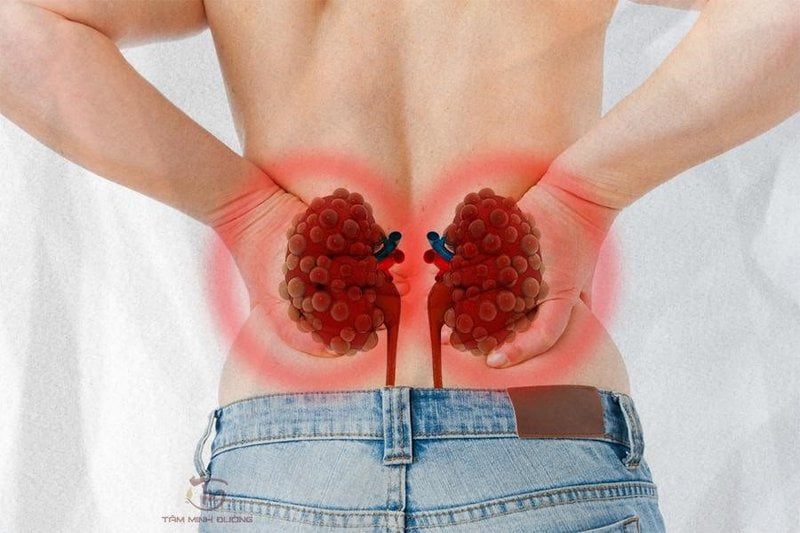Kidney stones 6-7mm should take medicine or should surgery?
This is an automatically translated article.
The article was professionally consulted with the Doctor - Urologist - Department of General Surgery & Anesthesia - Vinmec Hai Phong International General Hospital.
Kidney stones are a fairly common disease in our country, the disease can be seen at any age, in which it is more common in the elderly. Kidney stones account for up to 50% of stone diseases, the disease is easy to recur and can cause many complications, the most dangerous of which is kidney failure.
1. Are 6-7mm kidney stones dangerous?
Kidney stones have a silent progression, formed by the deposition of sediments in the urine, when the residues accumulate, they will form stones. At first, the stone is small in size, usually without any symptoms. Over time, the size of the stone increases gradually, when it presses on causing urinary retention, infection, etc., there will be symptoms such as back pain, painful urination, then the patient will go to the doctor and discover it. gravel.
Usually, stones with a small size of less than 5mm have the ability to pass out naturally with the urine. With larger stones, from 7mm or more, the ability to self-reject is very low. Large stones will cause pain in the hip and back on both sides, frequent urination, possibly infection, fever, etc. At this point, the patient needs to go to the doctor immediately for examination and treatment. provide appropriate treatment.
If the patient does not pay proper attention to health, it will cause the stone size to increase rapidly, causing dangerous complications such as urinary obstruction, infection, acute or chronic kidney failure, even It can even cause kidney failure.
2. Kidney stone 6-7mm should take medicine or should surgery?
The indication for treatment of kidney stones depends on two factors:
Stone size. The impact of stones on the kidney.
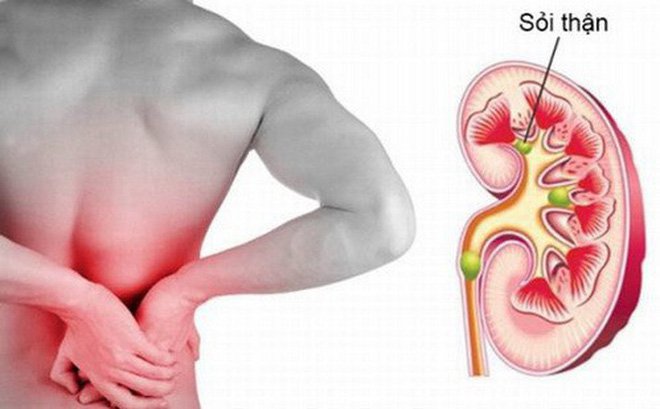
With 6mm kidney stones, medical treatment is often indicated, increasing urine output. There are some drugs that are able to dissolve some common stones with the chemical composition of urate or cystine. However, these drugs do not dissolve calcium stones, which up to 80% of kidney stones are calcium stones.
With 7mm kidney stones concurrently causing obstruction or urinary tract infection, then surgical intervention may be necessary. The surgical intervention here is not only open surgery method but also laparoscopic method. Up to now, open surgery method has been almost eliminated in developed countries due to high postoperative complications. However, in our country, the treatment of kidney stones by open surgery still accounts for a large proportion, even in large hospitals, because the patients often arrive late, the stone size is large and there are associated complications.
Surgical treatments that can be applied to 6 - 7mm kidney stones are:
Standard endoscopic percutaneous nephrolithiasis (Standart PCNL): This is a high-tech, minimally invasive method. . This method can treat large kidney stones, usually with stones > 25mm, especially with coral stones. When performing surgery, the patient is under general anesthesia, less pain, less than 1cm surgical scar, less kidney damage, hospital stay is only about 3-5 days. Endoscopic minimally percutaneous nephrolithiasis (Mini PCNL): This surgery is based on the principle of standard percutaneous endoscopic method but uses a small ureteroscope. Minimal percutaneous endoscopic lithotripsy can be applied to stones 15-25mm in size. This method helps to reduce the hospital stay to 1-2 days, has many other advantages such as: Less pain, less bleeding, less damage to kidney function and small surgical scars that are difficult to detect. Ureteroscopy: This method uses a very small ureteroscope to reach the stone, then uses a laser to break up the stone. Next, the debris is sucked out through the endoscope. Finally, a flexible catheter is placed into the urinary system, the two ends of the tube are curled in the renal pelvis and bladder (called a JJ catheter), which will be removed after 2 weeks. This method has advantages such as: less pain, no scar, hospital stay is only 1 day. Extracorporeal lithotripsy (ESWL): This is the most effective and gentlest method of treating kidney stones. This method is applicable to the case of stones <15mm in size. Extracorporeal lithotripsy (ESWL) uses shock waves to break up the stone, then the stone debris will be eliminated naturally in the urine. This method has a short hospital stay of 1/2 day, the rate of stone removal is about 55 - 85%.
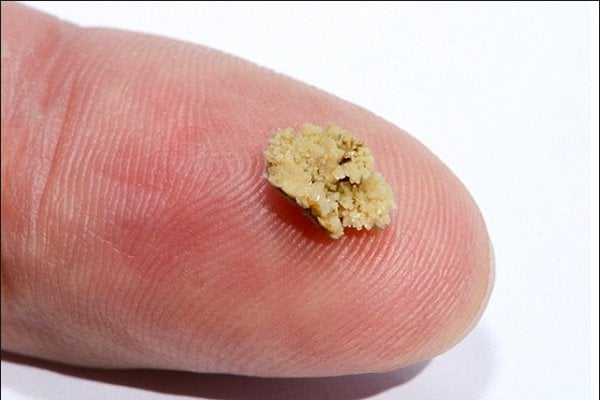
Kidney stones 6 - 7mm are not too big, but also not small, can take medicine or use lithotripsy methods. The choice of treatment method depends on the type of stone, the impact of the stone on the kidney, the hospital's equipment, and the experience and qualifications of the treating doctor. Therefore, patients should be carefully examined by specialists, choose appropriate treatment methods, should not self-treat according to experience or according to the advice of others.
Please dial HOTLINE for more information or register for an appointment HERE. Download MyVinmec app to make appointments faster and to manage your bookings easily.

